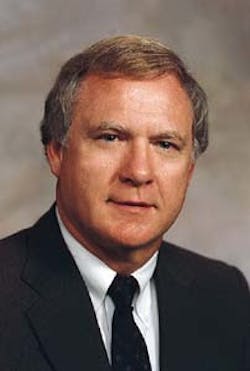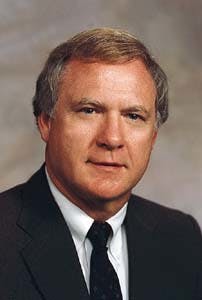Pipeline code, unitization top Texas issues
Richard Wheatley
Associate Managing Editor-News
Texas officials are grappling with proposals for a pipeline code of conduct and compulsory field unitization.
Those issues were advancing on the regulatory front and pending in the legislature, respectively, as the Texas Railroad Commission (TRC) met for the 48th annual state of the petroleum industry hearing recently in Austin.
Overall, speakers said, Texas' energy industry is robust, with upstream and downstream natural gas driving activity in the state's energy sector.
Generating much of the interest in Texas, however, is a draft code of conduct that would affect gatherers and intrastate pipeline companies and, ostensibly, benefit the state's producers. The plan elicited pointed testimony during the industry hearing, and it continues to produce significant concern among potentially affected parties, including TRC commissioners.
"The information this proposal would mandate to be disclosed would not be useful to the average small producer," Commissioner Carole Rylander said late last month.
"In addition to intruding into producers' and gatherers' private business matters in a way the Railroad Commission has never done before, it will be costly for producers, gatherers, and consumers, while providing no benefit," Rylander said.
Oil and gas company comments were due Apr. 29 on the proposal, which could lead to a TRC rulemaking involving natural gas transportation standards and business conduct (OGJ, Mar. 24, 1997, Newsletter).
On another front, action on legislation is pending on a bill calling for "state-assisted," or compulsory, unitization of Texas' fields. H.B. 1354 is being pushed by independents and a number of state oil and gas trade associations, especially by the Permian Basin Petroleum Association (PBPA), Midland, Tex., credited with advancing the issue.
Texas currently has no legal way to force non-consenting royalty and interest owners to approve unitization.
If passed, such legislation stands to speed operator efforts to unitize fields, reduce costs, add efficiencies, and specifically benefit secondary and tertiary oil recovery projects, advocates say.
Intrastates urge caution
The battle lines are drawn over the proposed pipeline code of conduct, which would add a new section to the state's Natural Resources Code and affect other sections of state law."Caution is needed whenever considering more regulation," warned David Jenkins, chairman of the Association of Texas Intrastate Natural Gas Pipelines (Atingp), Austin, and senior vice-president of MidCon Texas Pipeline Co.
In prepared remarks for the TRC hearing, Jenkins said, "The least amount of regulation is the best to allow industry to perform at its peak in a competitive arena."
A major aim of the proposal, presented initially to the TRC at a hearing in March, would be to level the playing field for the state's producers by seeking to mitigate alleged discriminatory practices and tactics downstream of the wellhead.
As drafted, one purpose of the proposed rule "is to specify certain gas gathering and transmission information that must be publicly reported to the commission to provide the commission and affected persons with information to help detect, prevent, and remedy unlawful discrimination."
According to Jenkins, "All segments of the industry should resist temptation during the many changes in our industry to look for scapegoats and quick-fixes via regulatory intervention.
"If one part of the industry is favored or one segment is penalized, it is to the detriment of all via increased costs and lost market share."
Alluding to a rulemaking outcome, Jenkins said, producers "will see lower prices and higher gathering and transportation costs.
"The FERC looks to Texas as a model for market-based regulation-much to the Railroad Commission's credit. We should also take a good look at the healthy, competition-driven market we have before we opt to change it."
Market 'transparency' needed
Standards of conduct "will make that market more transparent."That counterassessment came from Ershel C. Redd Jr., Houston energy consultant and formerly an Energy Development Corp. (EDC), Houston, vice-president for gas marketing and commercial activities.
"The more transparent the market, the more efficient we are all forced to become," said Redd.
Redd and EDC-sold in 1996-led one industry grassroots effort that sought changes in regulations covering the intrastate pipeline transportation market.
Redd said, "Competition often comes with a price, but the advantages far outweigh the costs in the long run. It may not always be best for the individual, but it is best for the overall industry."
EDC's actions stemmed from requests by TRC Commissioner Barry Williamson to industry representatives at the first TRC gas forum in Houston in 1996.
A major related effort has been and continues to be led by the Texas Independent Producers & Royalty Owners Association (Tipro), Austin.
Code specifics
Industry comments will be used to draft a revised code of conduct, and the TRC will solicit comments during a 60-day period after the draft is finally published in the Texas Register.Goal of the effort is to provide the commission with a legal framework for "identifying, preventing, and remedying unlawful discriminatory behavior."
Such discrimination is currently prohibited by state law.
Rylander said, however, that producers have told her that "if there are discrimination problems, this proposal doesn't solve them."
The proposed new section of state law will make information available to affected persons in order to enable them to protect their rights, either in negotiation with gas pipelines and gas gatherers or through complaint procedures of the commission.
Major areas of examination will be: "similarly situated shippers"-the definition as it relates to gathering, and whether or not discriminatory action has occurred; "transportation service" and whether or not gas processing is necessarily included as a part of such service; and information disclosure by transporters, dealing with accounting and billing services and including receipt/delivery points, volumes billed, and the rate paid for each transaction.
A similarly situated shipper is one that seeks or receives transportation services under the same or substantially the same physical, regulatory, and economic conditions of service as any other shipper or transporter.
A key part of the proposed rule is to prohibit "shipper preference" in the provision of transportation services vs. any other similarly situated shipper.
Basic standards sought
As currently drafted, the proposed new rule specifies seven basic standards in the code of conduct:Four apply to similarly situated shippers, and two apply to information that's available from or to affiliates and dictates that an affiliate cannot be favored in the availability of information.
The last deals with books and records of affiliates, which must be maintained so that an affiliate's activities can be identified and segregated.
Information posted on an electronic bulletin board used by the transporter must be retained on the information site for 6 months after first posting.
Exempted would be distribution and transportation activities services performed for retail customers by a local distribution company, as well as any entity that transports only its gas through its own system.
State-assisted unitization
House action is pending on H.B. 1354, the state-assisted unitization bill; the fiscal effect of the legislation on the state is currently under determination by the Comptroller of the Currency's legislative budget board.If enacted into law, the legislation would allow a unit to be formed after 75% of the royalty and working interest owners in a field agree to form a unit; as its stands now, voluntary unitization generally requires a high percentage of approval. In practical terms, 100% approval-or close to it-is required.
In addition to PBPA, the bill has the support of the Texas Mid-Continent Oil & Gas Association, Pandhandle Producers & Royalty Owners Association, West Central Texas Oil & Gas Association, and the North Texas Oil & Gas Association.
Tipro is studying the measure
Proponents maintain passage would boost field efficiencies, speed unitization by removing fractionalization of working and royalty interests under the state's voluntary system, and aid the economic viability of smaller advanced recovery projects.Proponents studied the effects of New Mexico's law on state-assisted unitization, in use for 18 years, as well as implications for Texas, should it adopt such a plan.
According to study results, New Mexico has added 280 million bbl of oil from 33 statutory unitizations since 1977.
If adopted, projections for Texas show that 165 state-assisted unitizations could occur in the same time period, yielding 1.4 billion bbl of oil, $28 billion in revenue, and more than $640 million in severance taxes, using a constant oil price of $20/bbl.
PBPA's stance
"While controversial to some, our association believes it is time for Texas to join the 33 other states that have a compulsory unitization measure on the books," said PBPA Pres. Paul L. Morris, president of Midland independent Wagner & Brown Ltd.Morris said, "The oil patch has changed dramatically over the years, and in the interest of maximizing production and preventing waste, the issue warrants a full and open debate within the industry."
As examples of what can occur under current spacing regulations, the flood pattern of a field being unitized can be thrown off if there is one non-consenting interest or royalty owner who disallows a well(s) to be converted to injection service. Such action would constrain injector placement in the unitized portion of a field in relation to the non-consenting party's lease, the bill's proponents maintain.
Because of the number of independents operating in the Permian basin area, the bill is seen as highly important, they add.
About 71% of new units formed in Texas using the voluntary method are in the Permian basin area. Texas field unitizations, totaling 119 during 1991-96, have become increasingly dominated by independents (see chart, p. 48).
Unitized secondary and tertiary projects have become "very much the arena of the smaller independent," said Douglass C. Robison, attorney and senior land negotiator for Henry Petroleum Corp., Midland, and an advocate for passage of the legislation.
Robison said majors are mainly concentrating on exploiting acreage already covered by unitization, with few, if any, applications for new projects being applied for by majors at the TRC.
Robison has been responsible for overseeing drafting of the current legislation and the work of the study team.
The Petroleum Industry Alliance of the University of Texas of the Permian Basin studied the New Mexico program and conducted economic evaluation.
The state, the industry
"The state of the natural gas industry is healthy...more competitive, efficient, dynamic, and customer-oriented than ever before. If industry participants and regulators are forward-thinking, opportunities for growth in the use of natural gas should continue to expand during the next decade."F. Jay Cummings, vice-president, pricing and economic analysis for Austin-based local distribution company Southern Union Co., offered those remarks at the TRC hearing.
Key TRC statistical data underscore the health of Texas' oil and gas industry.
Natural gas production in Texas in 1996 totaled 5.77 tcf for the third year in a row. Texas currently accounts for about 24% of U.S. natural gas output.
Gas well completions in Texas in 1996 totaled 4,060, the most since 1985.
Requests for new drilling permits have risen dramatically-up 31% in the fiscal year starting Sept. 1, 1996, from the same period a year earlier, and total drilling permits are up 23%.
PBPA Pres. Paul L. Morris
President of Wagner & Brown Ltd.
Copyright 1997 Oil & Gas Journal. All Rights Reserved.

